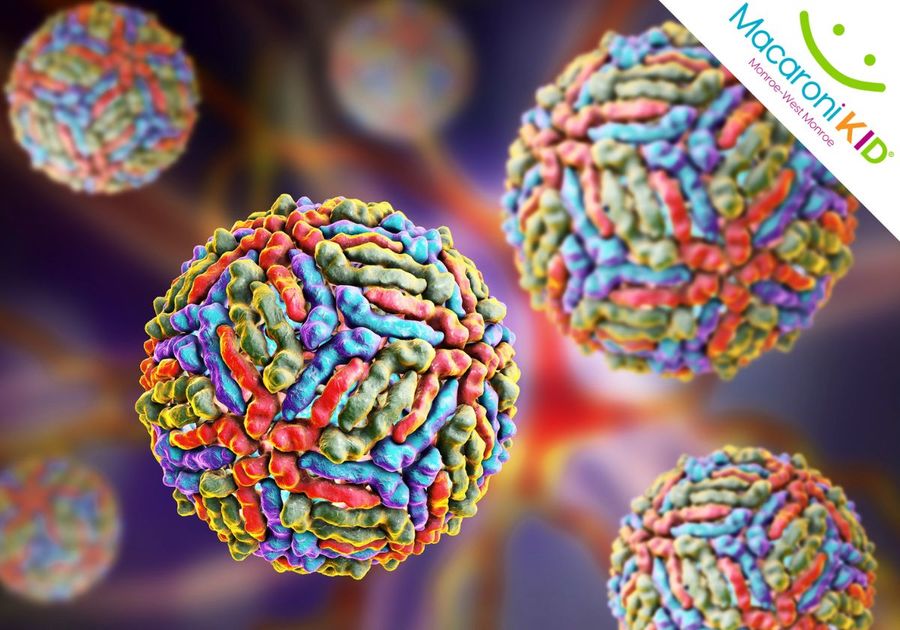On September 16 and 17, 2024, the Department of Health and Hospitals tested 26 mosquito pools in Ouachita Parish. The results showed that 16 of these locations had mosquitoes carrying the West Nile virus. While it's concerning to hear about the presence of the virus, it's reassuring to know that regular testing and treatment are being conducted. Being informed allows us to take proactive measures to keep our children safe as outdoor sports go into high gear.
What is West Nile?
West Nile virus is primarily spread by infected mosquitoes. These mosquitoes become carriers after feeding on infected birds and can then transmit the virus to humans through bites. Most people infected with the virus will not experience severe symptoms, but it can sometimes lead to serious illness, especially in vulnerable populations.
Who is Most Vulnerable?
While anyone can contract West Nile virus, certain groups are more susceptible to severe complications:
- Children: Their developing immune systems might not effectively fight off the virus.
- Elderly individuals: Those over the age of 60 are more likely to experience severe symptoms.
- People with weakened immune systems: Individuals with conditions like diabetes or kidney disease, or those undergoing treatments that suppress the immune system, are at higher risk.
Symptoms can range from mild—such as fever, body aches, and fatigue—to severe, including meningitis or encephalitis (swelling of the brain). Although serious cases are rare, focusing on prevention is crucial.
Positive Locations:
- Monroe: Near the intersection of Hwy. 165 and Renwick Street (1), Garden District (1), near River Oaks Subdivision (1), near Buckhorn Bend Loop (1), near Garrett Road (2), near Bernstein Park (1), and near Richwood Road No. 1 (2).
- West Monroe: Near Hidden Lakes Subdivision (3), near the intersection of New Natchitoches and Well Road (1), between WMHS and First West (3), and near Smith Street (2).
- Sterlington: Near Davis Street (2).
- Southeastern Ouachita Parish: Near the intersection of Prairie Road and Hwy. 165 (2).
- Western Ouachita Parish: Howard Brown Road area (2), Mount Vernon Church Road area (1), and near the intersection of I-20 and Hwy. 80.
Parenting Tips to Reduce Risk of West Nile Virus:
- Limit Time Outdoors at Dawn and Dusk
- Mosquitoes are most active during these times. Plan outdoor activities for other parts of the day.
- Dress Your Kids in Long Sleeves and Pants
- Lightweight, long-sleeved clothing can protect against bites. Choose light-colored clothes as mosquitoes are attracted to darker colors.
- Use Insect Repellent Safely
- Apply repellents with DEET, picaridin, or oil of lemon eucalyptus to exposed skin. For babies under two months, apply repellent to clothing instead of directly on the skin.
- Keep Screens Intact
- Ensure windows and doors have tight-fitting screens. Repair any holes or tears to keep mosquitoes out.
- Eliminate Standing Water Around Your Home
- Mosquitoes breed in standing water. Regularly drain water from toys, buckets, flowerpots, kiddie pools, and gutters.
- Use Mosquito Nets
- Use mosquito nets for babies in strollers or cribs to provide a physical barrier against mosquitoes.
- Install Fans Outdoors
- Mosquitoes are weak fliers. Outdoor fans create air movement that can deter mosquitoes from landing.
- Treat Your Yard with Safe Insecticides
- Use child- and pet-safe insecticides to reduce mosquitoes in your yard. Follow the instructions carefully.
- Turn Off Outdoor Lights at Night
- Mosquitoes are attracted to light. Use yellow "bug lights" which are less attractive to mosquitoes, or minimize outdoor lighting.
- Educate your children to avoid areas with stagnant water, such as ponds and drainage ditches, where mosquitoes gather.
By following these tips, you can significantly reduce your family's risk of coming into contact with mosquitoes carrying the West Nile virus. Staying informed and proactive is key to keeping your children safe and healthy while enjoying outdoor activities. For more comprehensive information about West Nile virus go to the Center for Disease Control.
Medical Disclaimer:
The information provided in this article is for general informational purposes only and is not intended to replace professional medical advice, diagnosis, or treatment. Always seek the guidance of a qualified healthcare provider with any questions you may have regarding a medical condition or treatment. Never disregard professional medical advice or delay in seeking it because of something you have read in this article.



